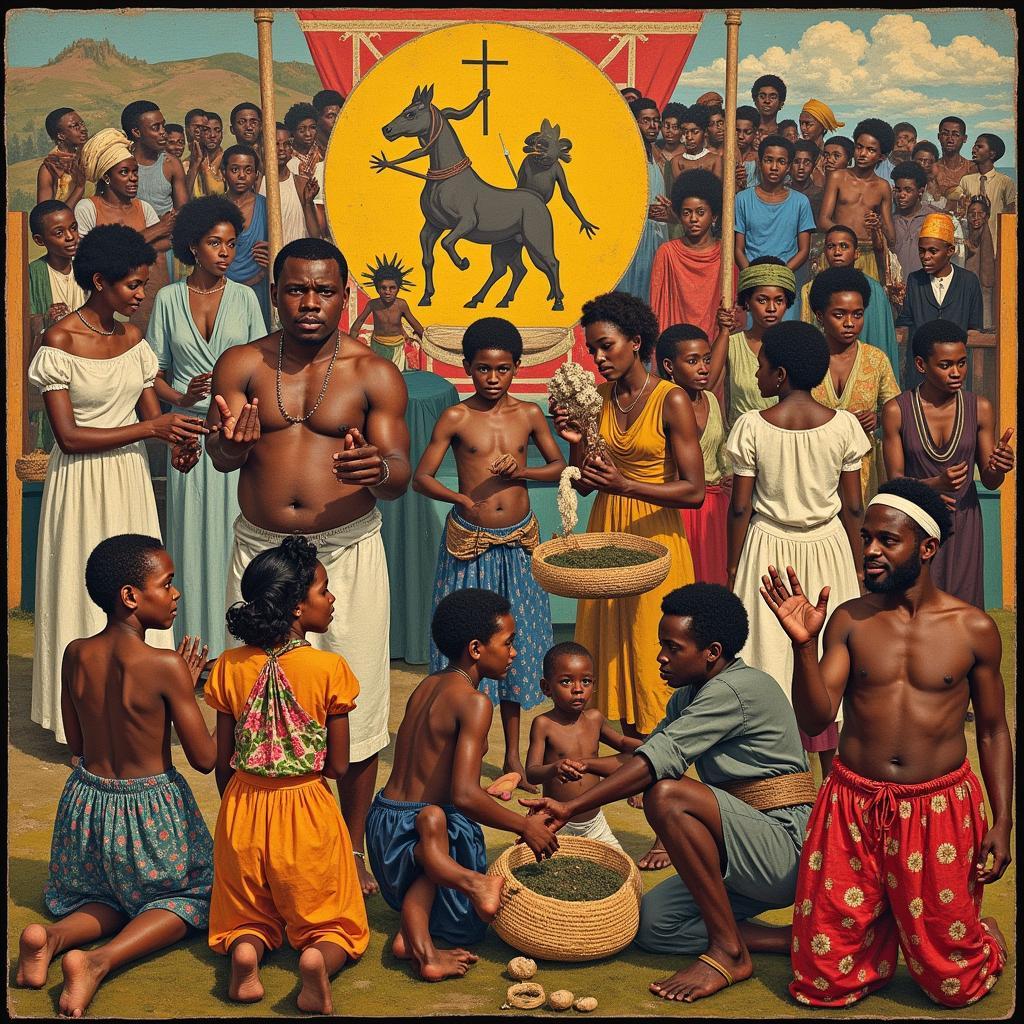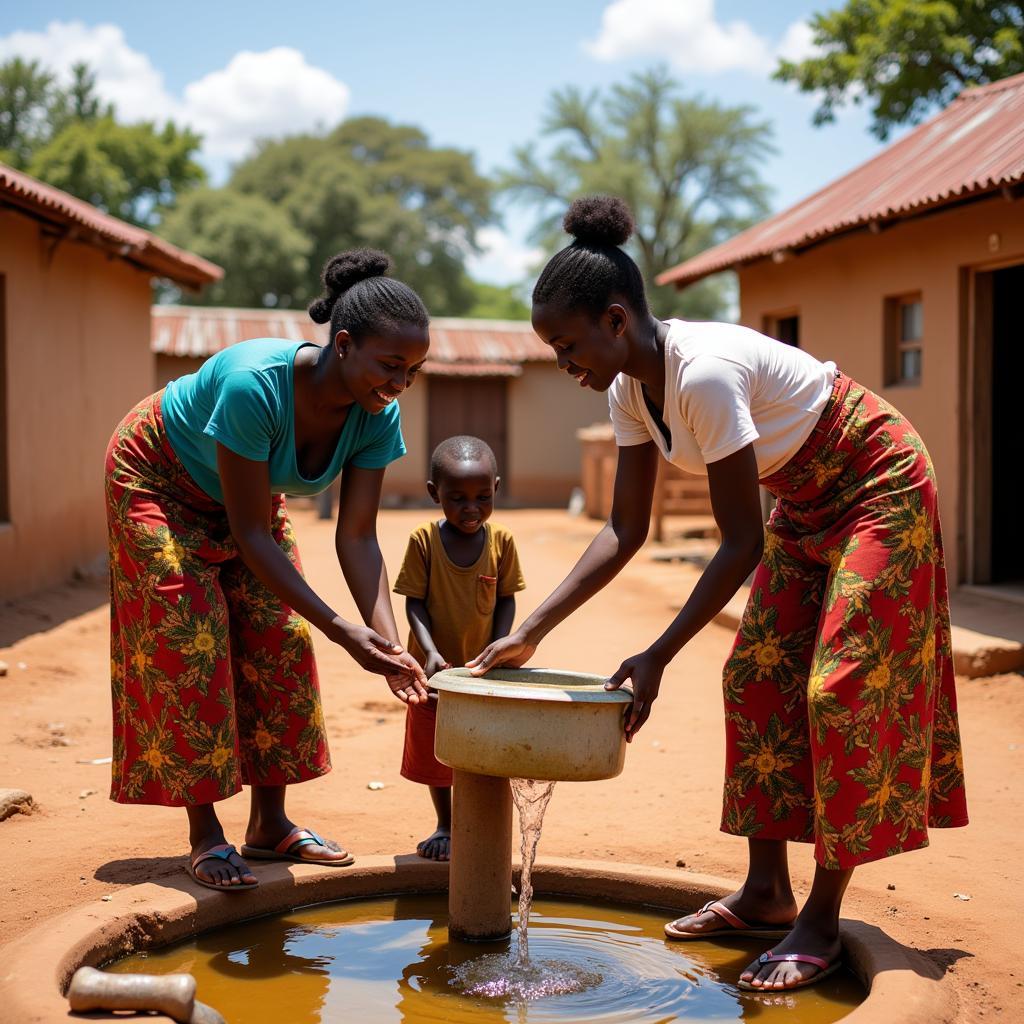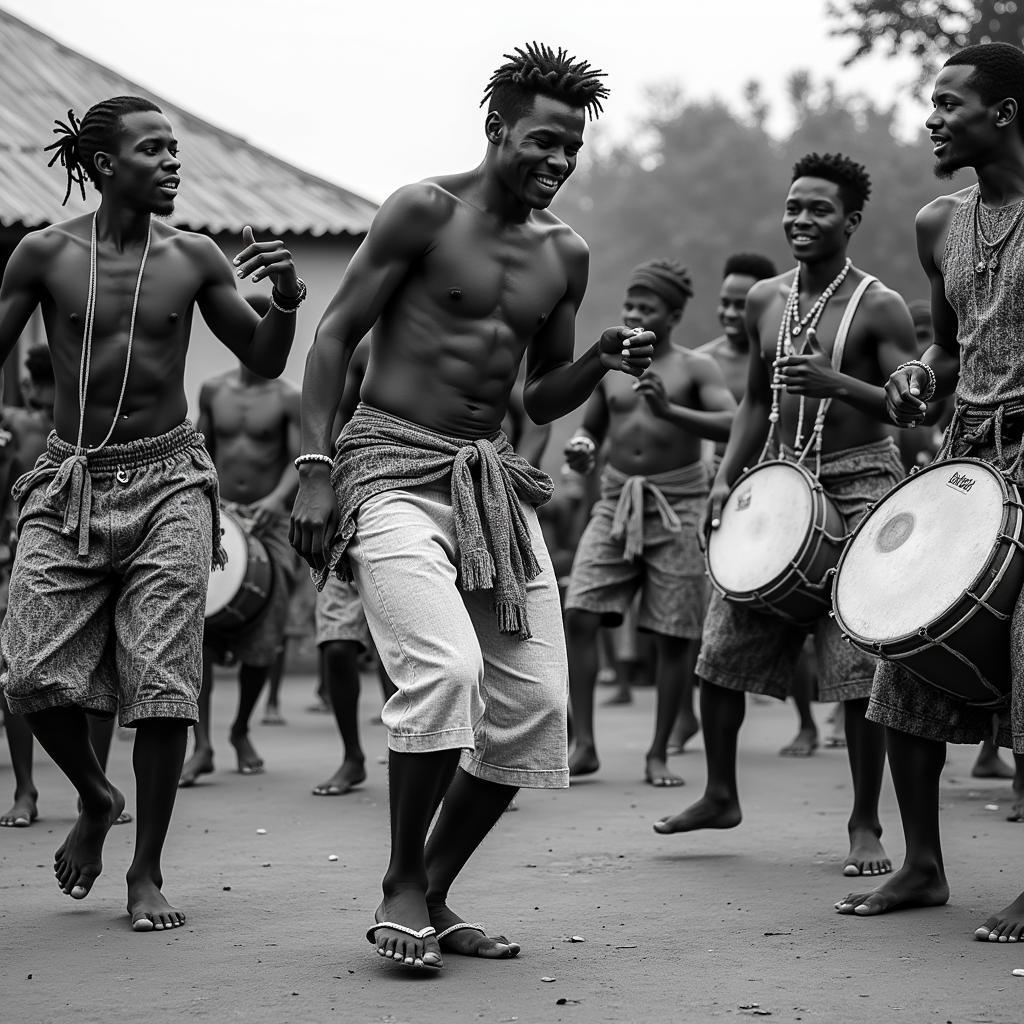Unveiling the Mystery: Exploring the World of African American Occultists
African American Occultists have played a significant yet often overlooked role in shaping esoteric traditions and spiritual practices in the United States. Their contributions, often intertwined with struggles for social justice and liberation, have left an undeniable mark on various occult movements. This article delves into the fascinating world of African American occultists, examining their beliefs, practices, and the historical context that influenced their unique perspectives.
Navigating Spirituality and Oppression: The Roots of African American Occultism
The history of African American occultism is deeply intertwined with the African diaspora and the transatlantic slave trade. Forcibly displaced from their homelands, enslaved Africans brought with them rich spiritual traditions and beliefs that provided solace and a sense of agency in the face of brutal oppression. These traditions, often syncretized with Christianity, formed the foundation of African American spirituality and would later influence the development of various occult practices.
 African Diaspora and Spirituality
African Diaspora and Spirituality
Hoodoo: A Blend of Tradition and Resistance
One prominent example of African American occultism is Hoodoo, a folk magic tradition with roots in the American South. Hoodoo draws upon a blend of African spiritual practices, Native American herbalism, and European folk magic. It served as a means of seeking protection, healing, and justice during a time when Black Americans were denied access to conventional forms of power. Hoodoo practitioners, known as rootworkers or conjure doctors, utilized herbs, roots, minerals, and personal items to create charms, spells, and rituals to address a wide range of concerns.
Father Divine and the Peace Mission Movement: Blending Spirituality and Social Change
Moving beyond folk traditions, the early 20th century saw the rise of charismatic figures who integrated occult ideas with social activism. Father Divine, a self-proclaimed God incarnate, founded the Peace Mission Movement, which advocated for racial equality, economic justice, and universal brotherhood. Combining elements of Christianity, New Thought, and metaphysical teachings, Father Divine attracted a diverse following seeking spiritual enlightenment and social change. His movement offered communal living, economic empowerment programs, and challenged racial segregation, demonstrating the potent intersection of occultism and social justice.
The Legacy of African American Occultism: Continuing the Journey
The influence of African American occultists extends far beyond their specific traditions. Their innovative approaches to spirituality, healing, and social change continue to resonate in various contemporary movements. From the resurgence of interest in ancestral veneration and traditional healing practices to the incorporation of social justice principles in modern witchcraft and paganism, the legacy of African American occultism is woven into the fabric of American esotericism.
FAQ
1. What is the main difference between Hoodoo and Voodoo?
While often confused, Hoodoo and Voodoo are distinct traditions. Hoodoo, a folk magic practice, focuses on practical magic for everyday concerns. Voodoo, a formalized religion with roots in West Africa, involves a complex system of deities, rituals, and beliefs.
2. Are there any prominent contemporary African American occultists?
Yes, many contemporary figures continue to contribute to the diverse landscape of African American occultism. They are authors, practitioners, and activists who draw upon ancestral wisdom while addressing modern-day issues.
3. Where can I learn more about specific African American occultists?
Numerous books, articles, and online resources delve into the lives and work of individual occultists. Additionally, academic journals and documentaries offer valuable insights into this fascinating field.
Seeking Further Understanding?
For those eager to further explore the rich tapestry of African American occultism, we invite you to delve into the related articles and resources available on our website. Discover the captivating stories, profound insights, and enduring legacy of these remarkable individuals who dared to navigate the realms of spirituality and social change.
Contact us for further assistance:
Phone Number: +255768904061
Email: kaka.mag@gmail.com
Address: Mbarali DC Mawindi, Kangaga, Tanzania.
Our dedicated team is available 24/7 to answer your questions and provide support.

